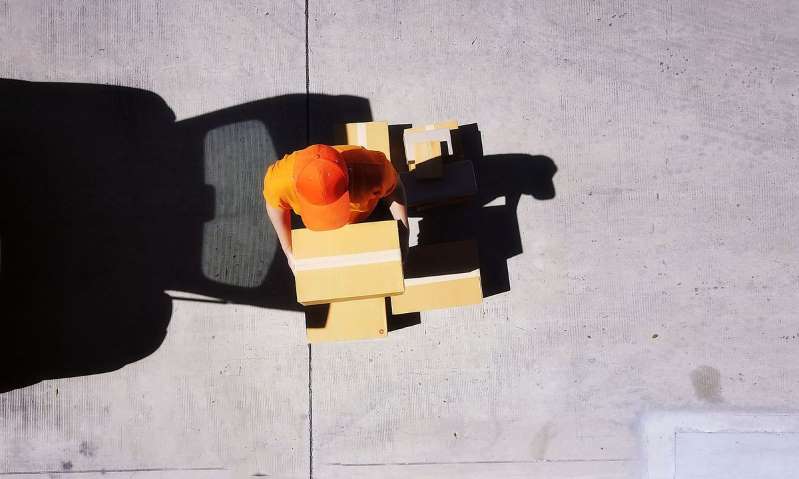
The booming online trade is also pleasing the domestic delivery industry. In recent years, the number of parcels delivered has increased steadily – by a good ten percent annually. There are still no official figures for 2020, but industry insiders are expecting an increase of up to 30 percent. That would correspond to 320 million parcels that were delivered in 2020. About half of this was carried out by the Post. In the previous year it was 450,000 a day, said Post boss Georg Pölzl in a joint press conference by Austrian mail order companies and forwarding agents.
With preliminary sales of 914 million euros, the parcel and logistics division accounts for almost half of Swiss Post's sales (preliminary annual result: just under 2.2 billion euros). Overall, the number of parcels will overtake that of letters in just a few years. E-mail, WhatsApp and Co. are making the printed letter increasingly superfluous.
Parcel delivery companies want to become greener
The reason for the flood of parcels is of course online trading, which has increased significantly again due to Corona. According to a study by the German CleanTech Institute, online shopping has less of an impact on the climate than is often claimed. While around 60 percent of stationary purchases are still transported by car, the carpooling of the packages ordered online ensures climate-friendly bundling effects by the logistics service providers. Around 30 percent of CO2 emissions could be saved in this way, explains Harald Gutschi, spokesman for the Unito retail chain, the largest Austrian mail order company with sales of 365 million.
Returns are an integral part of eCommerce. Almost all major mail order companies now offer free returns. “If we were to ask for money for this, we would not have a chance against the international competition,” explains Gutschi. The proportion of returns is around 25 percent, but has fallen continuously in recent years. Unito, which is a member of the Otto Group, has guaranteed its customers CO2-neutral delivery for all orders since the beginning of the year. The remaining emissions are redeemed by purchasing climate certificates.
The logistics partners are also concerned with climate-neutral delivery, which is why the entire industry is currently busy exchanging outdated fleets for new, more environmentally friendly vehicles. Online leader Amazon has also announced that it will deliver climate-neutral products by 2040. A big question in the future will be how the “last mile” can be completed completely CO2-free. Swiss Post is currently working on this. In the cities, in addition to decentralized delivery bases, cargo bikes are to be increasingly used in the future. When it comes to deliveries, there will also be more emphasis on electromobility in the future, according to Post boss Pölzl.
Hydrogen for the long haul
Electromobility becomes more difficult with longer transports with heavy trucks, explains Jürgen Bauer, managing director of the Vorarlberg freight forwarding company Gebrüder Weiss. “We can save quite a bit of CO2 with our e-trucks, but the current state of technology means that the options are limited. With our e-fleet we have a guaranteed range of up to 170 kilometers. ”Wherever possible, the logistics company has been shifting its goods to rail for ten years. However, rail transport is only profitable for a distance of more than 400 kilometers, calculates Bauer. In addition, the inconsistent rail infrastructure within the European Union makes transport across several national borders difficult. Bauer has great hopes for a hydrogen-powered heavy goods logistics system.
Gebrüder Weiss is currently testing the first Hyundai hydrogen truck in a pilot project in Switzerland. However, this is not yet in series production, which is why it still has a proud price. “The hydrogen truck costs three times as much as a comparable electric truck. For environmentally friendly transport logistics, however, hydrogen technology can become a real game changer, ”says Bauer, who also appeals to the government. “The necessary infrastructure should now be expanded, including the upgrading of the filling station network.”

